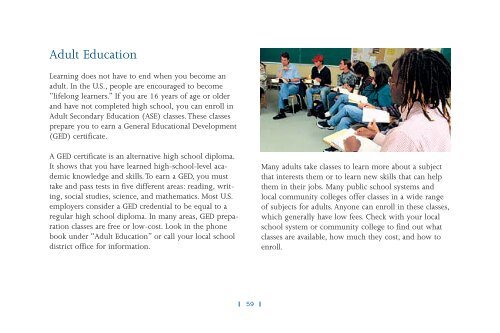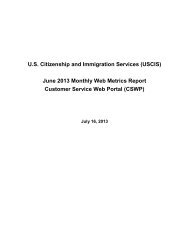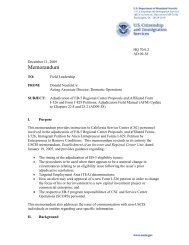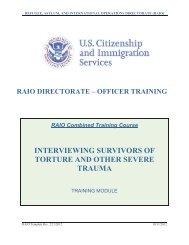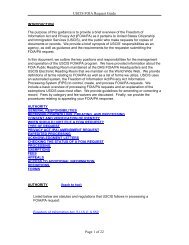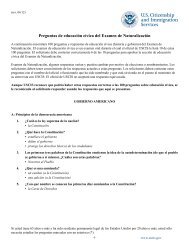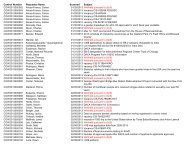Welcome To The United States A Guide For - USCIS.gov
Welcome To The United States A Guide For - USCIS.gov
Welcome To The United States A Guide For - USCIS.gov
You also want an ePaper? Increase the reach of your titles
YUMPU automatically turns print PDFs into web optimized ePapers that Google loves.
Adult Education<br />
Learning does not have to end when you become an<br />
adult. In the U.S., people are encouraged to become<br />
“lifelong learners.” If you are 16 years of age or older<br />
and have not completed high school, you can enroll in<br />
Adult Secondary Education (ASE) classes. <strong>The</strong>se classes<br />
prepare you to earn a General Educational Development<br />
(GED) certificate.<br />
A GED certificate is an alternative high school diploma.<br />
It shows that you have learned high-school-level academic<br />
knowledge and skills. <strong>To</strong> earn a GED, you must<br />
take and pass tests in five different areas: reading, writing,<br />
social studies, science, and mathematics. Most U.S.<br />
employers consider a GED credential to be equal to a<br />
regular high school diploma. In many areas, GED preparation<br />
classes are free or low-cost. Look in the phone<br />
book under “Adult Education” or call your local school<br />
district office for information.<br />
59<br />
Many adults take classes to learn more about a subject<br />
that interests them or to learn new skills that can help<br />
them in their jobs. Many public school systems and<br />
local community colleges offer classes in a wide range<br />
of subjects for adults. Anyone can enroll in these classes,<br />
which generally have low fees. Check with your local<br />
school system or community college to find out what<br />
classes are available, how much they cost, and how to<br />
enroll.


